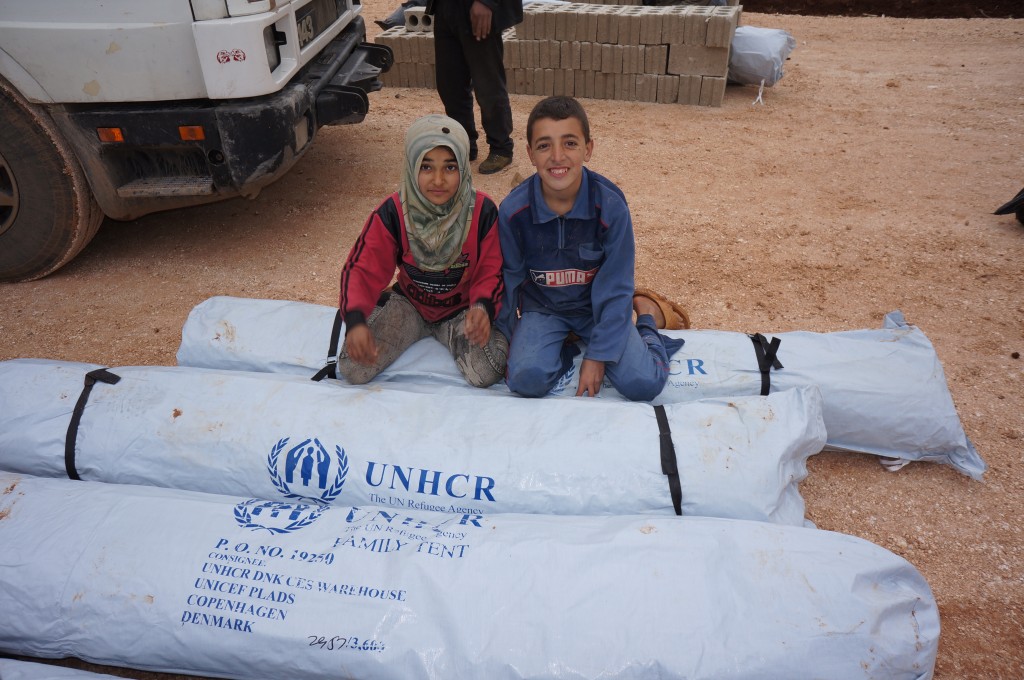Syria: Children in Peril
In June 2013 CDP interviewed Caryl Stern, President and CEO, U.S. Fund for UNICEF, about UNICEF’s work in Syria and the challenge of raising funds to support relief work in the country. U.S. Fund for UNICEF President and CEO Caryl Stern recently received an email from a staff member on the ground in Lebanon, describing […]
In June 2013 CDP interviewed Caryl Stern, President and CEO, U.S. Fund for UNICEF, about UNICEF’s work in Syria and the challenge of raising funds to support relief work in the country.
U.S. Fund for UNICEF President and CEO Caryl Stern recently received an email from a staff member on the ground in Lebanon, describing how conditions continue to deteriorate as the political strife in neighboring Syria escalates.
“The staff is becoming traumatized at the events they are witnessing but they continue knowing that their help means the difference between life and death,” Stern’s colleague writes.
The email details a recent visit in which a team of UNICEF workers found 35 Syrian refugee women and children hiding in a cramped garage. In their care was an 8-month-old baby, who had been left behind by her mother. The women were taking care of the child as if it were their own. The child was being fed a diet of tea and bread— the same as the rest of the group—and sleeping on a cold concrete floor with no blanket or clothing. She was wearing a plastic bag for a diaper. The overall conditions are dire with lice and scabies a common problem among the children.
“It is my hope that people will stop defining children by the borders in which they are born. Children don’t choose to be born into poverty or into conflict,” Stern says.
Yet UNICEF and other organizations in Syria do not have enough resources to help everyone who needs help. The needs are urgent—medical supplies, shelter, food, water and sanitation. Raising money has proven to be highly challenging.
As a point of reference, within one month following the Haiti earthquake, the U.S. Fund for UNICEF raised $70 million. It has taken more than an entire year to raise $2 million for Syria, and that included a $1 million matching gift from Educate a Child to help UNICEF keep a quarter of a million Syrian children affected by the conflict in school.
It is this funding need that keeps Stern up at night.
She wonders if Americans have concerns that donations will not reach the intended recipients because of the conflict, but Stern reiterates that aid is reaching those in need.
UNICEF has 70 staff on the ground in Syria and they have been active there for decades, as have many other organizations. “When you send money to UNICEF for Syria, it goes to our office in Syria and is deployed very quickly to help people,” she adds. “We are not new to working in areas of conflict. We know how to build relationships and to ensure that shipments of lifesaving supplies land in the right hands.”
It’s time to put aside political differences, urges Stern, and come together to help children and families living in horrid conditions. “If your concern is how America is perceived by a particular region, the best thing you can do to change that is to save someone’s child,” Stern adds.
Learn more about UNICEF and donate here: www.unicefusa.org/syria. Or consider supporting other organizations working in Syria:
World Health Organization (WHO)
World Food Programme (WFP)
Syrian Arab Red Crescent
Palestinian Red Crescent
Médecins Sans Frontières
Mercy Corps
IMC
Save the Children
More like this
It’s Time for a Serious Discussion About Syria

